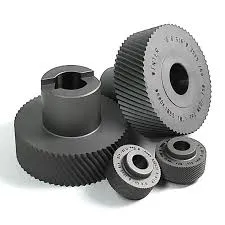
-
 Afrikaans
Afrikaans -
 Albanian
Albanian -
 Amharic
Amharic -
 Arabic
Arabic -
 Armenian
Armenian -
 Azerbaijani
Azerbaijani -
 Basque
Basque -
 Belarusian
Belarusian -
 Bengali
Bengali -
 Bosnian
Bosnian -
 Bulgarian
Bulgarian -
 Catalan
Catalan -
 Cebuano
Cebuano -
 Corsican
Corsican -
 Croatian
Croatian -
 Czech
Czech -
 Danish
Danish -
 Dutch
Dutch -
 English
English -
 Esperanto
Esperanto -
 Estonian
Estonian -
 Finnish
Finnish -
 French
French -
 Frisian
Frisian -
 Galician
Galician -
 Georgian
Georgian -
 German
German -
 Greek
Greek -
 Gujarati
Gujarati -
 Haitian Creole
Haitian Creole -
 hausa
hausa -
 hawaiian
hawaiian -
 Hebrew
Hebrew -
 Hindi
Hindi -
 Miao
Miao -
 Hungarian
Hungarian -
 Icelandic
Icelandic -
 igbo
igbo -
 Indonesian
Indonesian -
 irish
irish -
 Italian
Italian -
 Japanese
Japanese -
 Javanese
Javanese -
 Kannada
Kannada -
 kazakh
kazakh -
 Khmer
Khmer -
 Rwandese
Rwandese -
 Korean
Korean -
 Kurdish
Kurdish -
 Kyrgyz
Kyrgyz -
 Lao
Lao -
 Latin
Latin -
 Latvian
Latvian -
 Lithuanian
Lithuanian -
 Luxembourgish
Luxembourgish -
 Macedonian
Macedonian -
 Malgashi
Malgashi -
 Malay
Malay -
 Malayalam
Malayalam -
 Maltese
Maltese -
 Maori
Maori -
 Marathi
Marathi -
 Mongolian
Mongolian -
 Myanmar
Myanmar -
 Nepali
Nepali -
 Norwegian
Norwegian -
 Norwegian
Norwegian -
 Occitan
Occitan -
 Pashto
Pashto -
 Persian
Persian -
 Polish
Polish -
 Portuguese
Portuguese -
 Punjabi
Punjabi -
 Romanian
Romanian -
 Russian
Russian -
 Samoan
Samoan -
 Scottish Gaelic
Scottish Gaelic -
 Serbian
Serbian -
 Sesotho
Sesotho -
 Shona
Shona -
 Sindhi
Sindhi -
 Sinhala
Sinhala -
 Slovak
Slovak -
 Slovenian
Slovenian -
 Somali
Somali -
 Spanish
Spanish -
 Sundanese
Sundanese -
 Swahili
Swahili -
 Swedish
Swedish -
 Tagalog
Tagalog -
 Tajik
Tajik -
 Tamil
Tamil -
 Tatar
Tatar -
 Telugu
Telugu -
 Thai
Thai -
 Turkish
Turkish -
 Turkmen
Turkmen -
 Ukrainian
Ukrainian -
 Urdu
Urdu -
 Uighur
Uighur -
 Uzbek
Uzbek -
 Vietnamese
Vietnamese -
 Welsh
Welsh -
 Bantu
Bantu -
 Yiddish
Yiddish -
 Yoruba
Yoruba -
 Zulu
Zulu
thread rolling machine working quotes
Understanding Thread Rolling Machine Working Principles
Thread rolling machines are essential tools in manufacturing, particularly for producing high-quality threaded components. These machines utilize a unique cold forming process to create threads on a variety of workpieces. By compressing material rather than cutting it, thread rolling offers several advantages, including increased strength, reduced waste, and faster production rates. In this article, we will explore the working principles of thread rolling machines, their advantages, and their applications in various industries.
The Basics of Thread Rolling
Thread rolling is a process in which a blank workpiece, typically made from a ductile metal, is fed between two or more dies. These dies are specifically designed to form the desired thread profile on the workpiece. The machine operates by rotating the dies and applying significant pressure to the workpiece, causing the material to flow and take the shape of the die's threads. This method does not remove material but rather displaces it, resulting in a more robust finished product.
Types of Thread Rolling Machines
There are primarily two types of thread rolling machines flat die and cylindrical die machines.
1. Flat Die Machines These machines have two flat dies that can roll against the surface of the workpiece. They are usually used for producing larger diameter threads and are capable of forming both external and internal threads with high precision.
2. Cylindrical Die Machines These typically employ two cylindrical surfaces where the workpiece is rolled between them. This setup is standard for producing small-diameter threads. Cylindrical die machines are well-suited for high-volume production as they can handle the continuous feed of workpieces.
Advantages of Thread Rolling Machines
thread rolling machine working quotes

1. Material Efficiency One of the most significant advantages of thread rolling is material efficiency. Since it does not cut away material, there is minimal scrap generated during the process. This leads to cost savings, as manufacturers can utilize a higher percentage of the raw material.
2. Increased Strength The cold working nature of thread rolling enhances the mechanical properties of the material. The process work-hardens the surface and alters the grain structure, resulting in threads that are typically stronger than those produced by cutting methods.
3. Speed and Productivity Thread rolling machines operate at high speeds, enabling manufacturers to produce large quantities of threaded components in a relatively short period. Their ability to produce threads without requiring extensive setup or downtime contributes to higher productivity levels.
4. Superior Surface Finish Products produced via thread rolling often have a smoother surface finish due to the nature of the process. This quality is particularly essential in applications where thread engagement and torque transmission are critical.
Applications of Thread Rolling Machines
Thread rolling machines are utilized in numerous industries, including
- Automotive These machines are critical in producing various components, such as bolts, screws, and fasteners used in vehicles. - Aerospace They manufacture high-strength threaded parts that can withstand extreme conditions. - Construction Fasteners created through thread rolling are often used in structural applications, providing reliability and strength. - Electronics Tiny threads for electronic components are also produced using thread rolling, benefiting from the precision and efficiency of this method.
Conclusion
Thread rolling machines represent an innovative solution for producing high-quality threaded components across various sectors. Their ability to enhance material properties, coupled with the efficiency of the cold-forming process, positions them as vital tools in modern manufacturing. As industries continue to evolve and demand higher performance materials and components, the role of thread rolling machines will only become more significant. Manufacturers looking to optimize their production processes should consider the benefits of integrating thread rolling technology into their operations, ensuring they meet the demands of contemporary markets with efficiency and quality.
